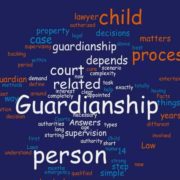Ohio’s Right to Disposition – Who Has Final Say?
Cleveland, Ohio, Estate Planning lawyer, Daniel A. Baron, of Cleveland, Ohio, offers the following information on the issue of your Rights to Disposition after you pass.
Imagine if you will, your Uncle Harry has passed away and although he had specific wishes on what to do with his remains, there are others in a packed courtroom (immediate family members, blended family members, extended family members, friends, and lawyers) all thinking that they know what Uncle Harry’s final wishes were.
Although we always seem to hear about this situation coming out of Hollywood or New York City, you don’t have to be a celebrity to have family, friends, and lawyers be involved with what to do with your remains. Not only can this cause undue stress between family members and friends, but this can also produce large legal fees from opposing attorneys. Ohio has a law which went into effect October 12, 2006 to prevent legal battles such as these from occurring.
Should you have questions like these, they are better answered by a qualified Estate Planning Lawyer.
- What criteria do the courts use in deciding whether someone should be given authority to make the funeral decisions?
- What precautionary measures are in place if the “designated person” in charge of making such decisions is not qualified or capable of making this type of decision any longer?
- What ae some issues pertaining to funerals that arise that tend to lead to legal battles?
- How does Ohio address these potential issues?
- What occurs when there has been no person designated to make these decisions?
- Is there a provision that allows someone to name a group of people rather than an individual having the right to dispose of the remains?
For answers to these and any other estate planning questions it is prudent to contact an experienced Estate Planning Lawyer. Contact Daniel A. Baron of Baron Law today at 216-573-3723 to arrange a meeting.
Helping You and Your Loved Ones Plan for the Future
















